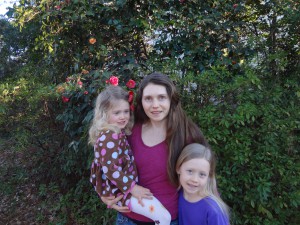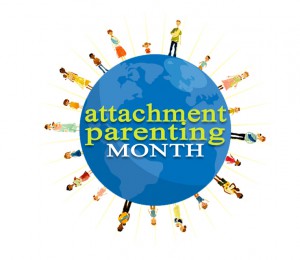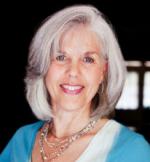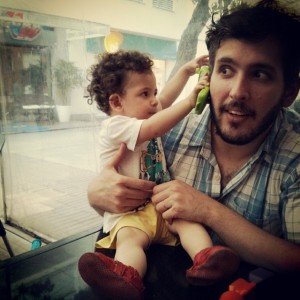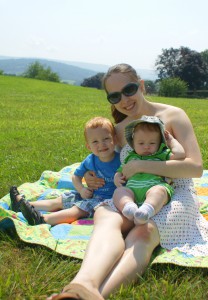Editor’s note: This interview with Peggy O’Mara was originally published on March 7, 2014. The longtime owner and editor of Mothering magazine, this woman helped to inspire so many Attachment Parenting families. And now there’s an opportunity for you to meet her and she her speak at Attachment Parenting International’s 2014 “Cherishing Families, Flourishing Children” conference on September 26-27 at Notre Dame University in South Bend, Indiana, USA. It’s not too late to register for this one-of-a-kind event!
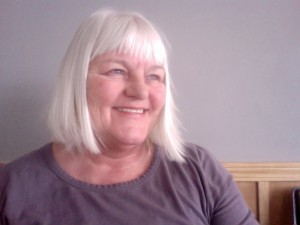 As it turns out with so many of the most amazing people I have been privileged to write about, Peggy O’Mara—a mother of four who was an absolutely integral force in starting and carrying the Attachment Parenting movement for 35 years through her magazine, Mothering—didn’t set out to change the world.
As it turns out with so many of the most amazing people I have been privileged to write about, Peggy O’Mara—a mother of four who was an absolutely integral force in starting and carrying the Attachment Parenting movement for 35 years through her magazine, Mothering—didn’t set out to change the world.
But, wow, she sure did.
I always pictured Peggy as a high-powered magazine executive, but it became quickly apparent that she is just like you and me—first and foremost a mother, now a grandmother, who adores her family but also has a giving heart with a passion for helping parents at all points in their parenting journey.
To begin with, when I began our phone interview and apologized ahead of time for the interruptions from my children that were sure to happen—and did, over a box of Valentine’s Day cards—Peggy recalled a memory of the magazine’s staff, including herself, bringing children into the office and attending them while pushing out stories and putting together the lifeline for so many mothers that Mothering was. Oh, and she said that sometimes she misses that part with the children underfoot.
While for many of us, Peggy O’Mara and Mothering are synonymous—one will always be linked to the other in our minds—I want this interview to celebrate Peggy as herself, because while Mothering magazine was a large part of her life, she is so much more.
RITA: You began with Mothering at a time very different from today, more than a decade before Attachment Parenting International was founded. What inspired you to begin your Attachment Parenting journey?
PEGGY: I was a La Leche League Leader before Mothering.
I gave birth to my first child in 1974. I was living in southern New Mexico (USA), which was a pretty rural area. My husband and I had moved there wanting to get back to the land. We just had that kind of mindset.
My parents were there, too. When, I became pregnant, La Leche League was the first thing I found for any kind of support.
There was a really strong culture of volunteering in those days. Women were just beginning to work more outside the home. I became a La Leche League Leader in 1975. Because there were so few leaders in the area, I quickly took on other volunteer jobs within La Leche League. I did the area newsletter for a time, and then I took on the job of coordinating leader applicants. This job is really what prepared me for Mothering, especially in talking to people about their parenting philosophies and learning how to ask questions. I learned so much from La Leche League.
 RITA: And then came Mothering?
RITA: And then came Mothering?
PEGGY: Most people think I founded Mothering, but I didn’t. I actually found Mothering in 1976, in a health food store in Albuquerque (New Mexico, USA).
Addie Eavenson founded Mothering in southern Colorado (USA) in 1976 and then moved to Albuquerque. I moved to Albuquerque in 1978. Earlier that year, I had sent Mothering an article I wrote entitled “In Defense of Motherhood.” I was reading all these bad stories of motherhood, but no one was saying about how ecstatic it was to be a mother. Addie called and asked me to be an editor! I was pregnant with my third child at the time and literally threw up because I was so excited.
Soon I found myself trying to work at Mothering with three kids under age 5.
Then Addie decided to sell the magazine. She was just ready to move onto something else in her life. She wanted a $5,000 down payment that I didn’t have. I went everywhere, talked to every banker, trying to get the money but I couldn’t get any. So she was going to sell it to someone else, but then that fell through and I was able to buy the magazine without the down payment—though my husband and I had some pretty stiff monthly payments. It was a miracle! It really was a miracle, and that really influenced me to feel that could I do anything.
So I bought Mothering in 1980, and that was the beginning of that.
RITA: Why did you stay with the name Mothering? How do you feel about fathers?
PEGGY: Fathers are very essential. I think people didn’t think we appreciated fathers.
When I started with Mothering, I wanted to change the name Whole Family Living. But Addie reminded me that she had named it Mothering to celebrate the act of mothering. At the time the magazine was founded, mothering itself was really maligned. This was in the 1970s when some feminists called homemakers the family servant. I was among the first generation of mothers leaving the home to go to work.
It’s also important to recognize that fathers are more nurturing now than they were when Mothering was started. Fathers have come so far now that there is a stay-at-home dad’s conference in California (USA). That’s very different than it was in the 1970s.
A mother depends on the support of her partner at home. And here I mean same-sex couples as well as heterosexual couples. Regardless of sexual orientation, our partner’s support is essential; it’s everything.
RITA: What was it like in the early days of Mothering?
PEGGY: The early days were very much “learn as you go.” All I wanted to do was be able to give information. I was very intimidated by the magazine industry. I didn’t want to read anything about it, because I didn’t want to know how much I didn’t know, so I just did it one step at a time. I tried to publish what I wanted to see in a magazine, stories I wanted to read, stories from interesting people, beautiful photos, ideas that moved me.
We were hesitant about new technologies at first. Our first office machine was a copy machine in 1982. I remember being pregnant at the time and standing with my belly off to the side, because I didn’t know if it was safe to be around the copy machine while it was running.
Getting our first fax machine was a big deal. And of course computers—Mothering grew up as technology did, but we were cautious because as a health-oriented magazine, we had published articles on the risks of computer screens to pregnant women. New screens reduced those risks.
RITA: When did Mothering seem to intersect the wider natural living and Attachment Parenting movements?
PEGGY: Mothering really caught on in 1998. President Bill Clinton was in office, and the environmental movement was really getting going. Cloth diapers were big. There was a growing interest in social justice.
It used to be that anyone looking at Mothering was very much into the natural lifestyle. Anyone reading Mothering was either all in or all out. Then in the mid-1990s, I hired a couple of editors who were different than our traditional readership—they were athletes, really into fitness, and they found that natural parenting worked well with their lifestyle. This was a big change for Mothering: People were choosing natural parenting, but it didn’t define their entire life. The culture was changing quickly from a time when natural food and natural living was considered “out there” to a time now when they are now integrated fully into mainstream life.
In 1998, Mothering went from a quarterly to a bimonthly magazine. We also started going to the Natural Products Expo. By the early 2000s, we started seeing babywearing everywhere. It grew to incredible popularity because of the fashion aspect and, along with it, came many of the ideas of Attachment Parenting we had been heralding since the 1970s.
We also started seeing growth in Mothering’s influence. Ideas like the family bedroom and nursing past 2—I never thought they’d be so accepted by society. It used to be that no one but those of us at La Leche League meetings was talking about these kinds of things. Now they’re part of the national conversation. They’re something that everyone is talking about and most new parents are considering, and many people are doing some parts of it or all of it.
RITA: And Mothering helped to inspire Attachment Parenting International as well.
PEGGY: I first met Barbara Nicholson and Lysa Parker [API’s cofounders] through La Leche League. They were leaders, too, and we would attend the same conferences. I think we were all influenced by a talk at one of the conferences by Dr. Elliott Barker of the Canadian Society for the Prevention of Cruelty to Children, who explained how every violent criminal he had encountered had a history of extreme separation and insecure attachment as a child.
RITA: Certainly you had more influence through Mothering than you might have realized. And yet somehow, even the best of causes seem to find opposition. How did you handle Mothering’s critics?
PEGGY: In many ways, having critics means that you are affecting people, making them think and respond. I tried to offer explanations and evidence, but often critics respond emotionally and Mothering is not for everyone. I took on controversial topics in print, because I wanted parents to have important information to make decisions about their children now. I trusted that parents would sort out their own truth from what I offered, and I never pretended to be objective.
Online, our discussion forums grew rapidly and were ranked by Big Boards as the largest for parents online. This was in the early 2000s before Facebook, Twitter and Pinterest got so popular, and we had seen other online communities go out of control and implode. We drew some criticism for our moderation policies at that time, but they were intended to keep the discussions civil and focused on natural family living. At one time, we had 80 volunteer moderators.
RITA: When did you decide to transition Mothering from print to online?
PEGGY: Well, it wasn’t so much a decision as something about which there was no choice. Mothering in print was a small magazine, a niche magazine, with a 100,000 circulation. In the mid-1990s, we founded Mothering.com and the boards. In the 2000s, the growth of Mothering.com far eclipsed the magazine. By 2010, we were seeing 750,000 unique visitors per month. Parents everywhere, within and beyond Mothering, were going to the Internet.
That growth of Mothering.com paralleled with what happened to the economy. We had grown the business to a $2 million-per-year business. 2009 was our best year.
In 2010, we were seeing the beginnings of the recession. Our advertising dropped and so did our subscriptions. Nearly half of our subscriptions were traditionally gift subscriptions. During the recession, people weren’t giving gifts. They weren’t buying subscriptions. Advertising in print was down.
We were cutting expenses, but it got the best of us and Mothering developed a lot of debt to the printer and to our ad reps. The last three issues of 2010 were printing later and later, because our cash flow was reduced. We were selling ads, but our January 2011 issue experienced the lowest ad sales in 10 years. We were just too far gone by then. It was all I could do to keep from going bankrupt, so I had to sell the business.
I stopped publishing the magazine in February 2011 and sold the website to pay off the print debt in July of 2011.
I became an employee of the new owners. I had a two-year contract and then was laid off in November of 2012. I was unemployed for the first time in decades but was able to get a reverse mortgage and reduce my monthly payments quite a bit.
Even though I am no longer associated with Mothering, others continue to think of Mothering and me as one and the same. I have no control over the editorial or advertising direction that Mothering is taking now, and yet I will always be associated with the business in many people’s minds.
RITA: That is so hard. I praise you for making it through.
PEGGY: Thank you. It has been hard.
RITA: And now?
PEGGY: I didn’t think I could do a digital magazine without staff, so I challenged myself to make a WordPress site. It gave me confidence after I lost so much.
I started www.peggyomara.com in August of 2013. I’m doing what I did in the beginning with Mothering—really connecting with writers and people who have interesting things to say. I’ve always been motivated by social justice and can focus more on that now.
I’m really having fun. There’s a lot less pressure, so I can be more creative now. I plan to grow the site just the way I grew Mothering.
RITA: The Internet has changed so much of how everyone communicates and how information is disseminated to the public. What are your thoughts?
PEGGY: I love blogging. I love the Internet. I like what the Internet has given us in access to information and freedom from isolation.
There are a lot of voices on the Internet. You’re able to choose your own reality, your own world. You choose what you really want to know, whom you want to listen to. The evolution of the online user is such that people eventually look for the authoritative voice so that the information they’re getting is something they can trust.
RITA: Do you feel that parents can get adequate support through online sources?
PEGGY: Parents can get a lot of information online, but it’s not a substitute for in-person support. What the Internet has increased so much is advocacy and social entrepreneurship.
RITA: With your history of advocating for natural parenting and Attachment Parenting, what advice can you give others?
PEGGY: Start by acknowledging the other person’s position. For example, through La Leche League meetings, I learned that even if I had a great experience breastfeeding, another might have had a lot of difficulty or felt tied down by the frequent nursings. In order to talk to and possibly help a mom with different experiences than my own, I have to understand my own biases and practice compassion.
Start with a certain gentleness. Share your experiences, and keep it personal. Talk from your heart rather than your head. Use I-messages, just as you would to talk to your child. Talking about your own experiences is better than anything, rather than lecturing.
At the same time, in the media, too much information is presented as opinion when facts do matter. There is a difference between opinion and facts. I always try to combine my instincts with the science if I can.
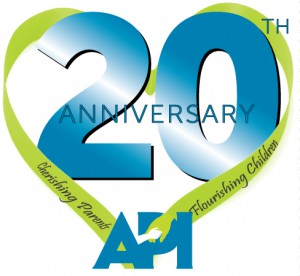 I am grateful for many things big and small, grand and mundane. Today, it is the joyful shriek of my girls running in the twilight.
I am grateful for many things big and small, grand and mundane. Today, it is the joyful shriek of my girls running in the twilight. From the time I was a new mother feeling so strongly that my baby needed to be close to me and not knowing why…to now, when I step into a room filled with old friends and new who are all there to support the journey we are on to parent as we wish we were parented.
From the time I was a new mother feeling so strongly that my baby needed to be close to me and not knowing why…to now, when I step into a room filled with old friends and new who are all there to support the journey we are on to parent as we wish we were parented.
